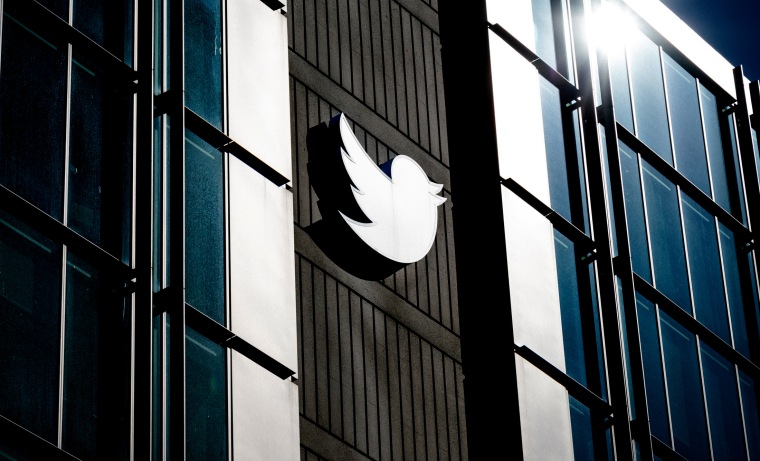People often think of dunking on Twitter as a way to downvote terrible tweets while having a laugh. But it turns out they might actually be accidentally giving them a boost instead.
Slamming a bad tweet isn't just sometimes giving it oxygen — it might be attaching it to a hot air balloon.
An analysis from a group of researchers at New York University focused on members of Congress suggested that when users swarm tweets to denounce them with quote tweets and replies, they might be cueing Twitter’s algorithm to see them as particularly engaging, which in turn might be prompting Twitter to amplify those tweets. The upshot is that when people enthusiastically gather to denounce the latest Bad Tweet of the Day, they may actually be ensuring more people see it than had they never decided to pile on in the first place.
That possibility raises serious questions of what constitutes responsible civic behavior on Twitter and whether the platform is in yet another way incentivizing combative behavior.
Twitter recently conducted an internal study of elected officials and news organizations in seven countries and found that in six of them, Twitter’s algorithm amplified tweets from right-wing politicians more than left-wing politicians and right-leaning publications more than left-leaning ones. Twitter said the causes of these trends are not yet clear and that further study has to be conducted to determine if the trends are because of user behavior or the workings of the algorithm — and deemed the latter possibility “problematic.”
The NYU researchers then proposed a hypothesis on what might be driving this trend based on their study of how Twitter users engage with members of Congress. Using huge samples of tweets, they found that right-wing politicians are more likely to be “ratioed.” Ratioing refers to the way an unpopular tweet receives a much higher number of comments, in the form of replies or quote tweets, than direct retweets — basically the phenomenon of users swarming a tweet to deride it rather than endorse it. It’s possible, they argued, that Twitter’s algorithm perceives ratioing as promising engagement and as a result boosts the tweet higher in people’s timelines, ensuring more people overall see it.
The researchers said they haven’t established a causal link between being conservative and getting ratioed, nor can they prove the ratio is in fact the signal that accounts for how Twitter’s algorithm amplifies conservative politicians. But conservative ideology correlates with an increased likelihood of a tweet being ratioed, and, the researchers wrote, “that may help to explain why the platform amplifies conservative politicians’ voices — because if you train an algorithm to amplify tweets with which people are engaging, it may not care whether the engagement involves people celebrating and enjoying tweets and their authors, or hating on them.”
Dogpiling is fun, often funny and provides a release of sorts. But it’s often also a low form of discourse: an insult without substantive reasoning.
The researchers’ theory strikes me as plausible, given the way social media algorithms tend to value posts that elicit a great deal of comments and increase user time on the platform. And if it turns out to be true, there’s some discussion to be had about whether dunking on Twitter is even worse than we assumed.
Slamming a foolish or wrongheaded statement is a big part of online culture. Twitter, with its short, decontextualized and often polemical messages, lends itself to this culture of mass commendation perhaps more than any other major platform. But now we're confronted with the possibility that slamming a bad tweet isn't just sometimes giving it oxygen — it might be attaching it to a hot air balloon.
It's one more reason to question the value of the culture of mass condemnation. Dogpiling is fun, often funny and provides a release of sorts. (I strive to be constructive in my replies to tweets, but I also readily admit I’m guilty of purely snarky quote tweets.) But it’s often also a low form of discourse: an insult without substantive reasoning.
So what could be done differently? At the level of individual user behavior, people could decline to engage with tweets they find hateful and exercise an underutilized resource we all have: the capacity to hold one’s tongue, even in the face of something so irksome it begs for an insult. Alternatively, people can use screenshots of things they find loathsome, which would allow them to indulge in the desire for a dunk without inadvertently boosting the original tweet. One should also perhaps be discerning about what exactly is being criticized. If it’s disinformation or misinformation, say, about voter fraud and vaccines, that’s a strong reason to not dogpile and instead screenshot. If everyone is making fun of a politician for making a typo, it’s probably not a big deal either way.
This is not to say quote-tweeting and replying to a tweet is never worthwhile — far from it: Registering dissent, refuting a point constructively and directing the public to better information or better arguments should be encouraged. A lot of the issue comes down to volume. If you’re the 400th person responding to, say, a right-wing pundit making the case for white nationalism, it may be worth pausing to consider the potential consequences of boosting the original statement. It may not just be unproductive; it could be dangerous.
Should Twitter ever signal the NYU hypothesis is right, it will have the option to recalibrate its algorithm to not favor ratioed tweets. But given everything we know about how social media designs its architecture to maximize engagement, I’m skeptical that the company would take steps that would not reward tweets that elicit huge amounts of commentary. For-profit social media companies will always have an interest in eliciting the emotions of their users — and conflict is a surefire way to do it.

